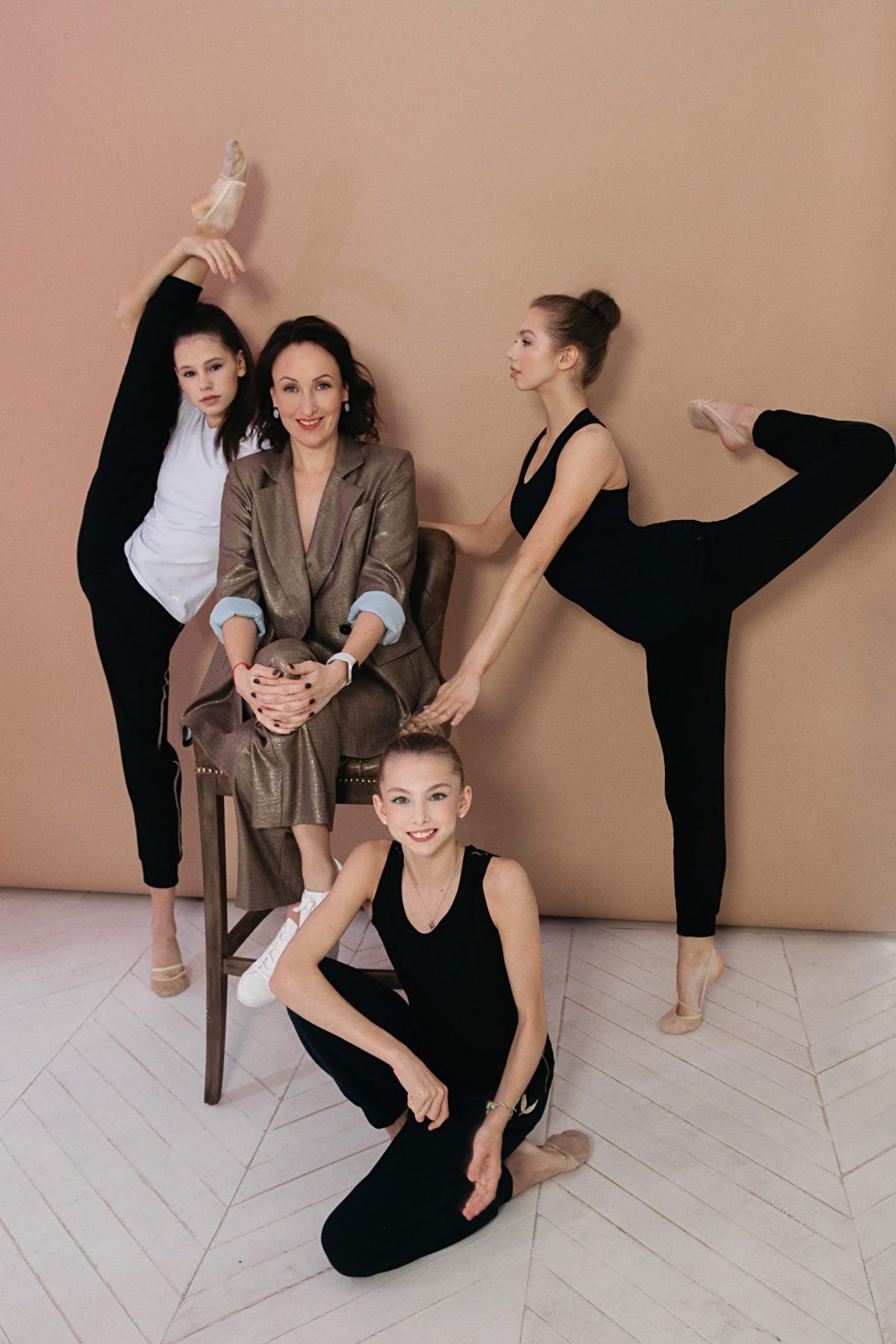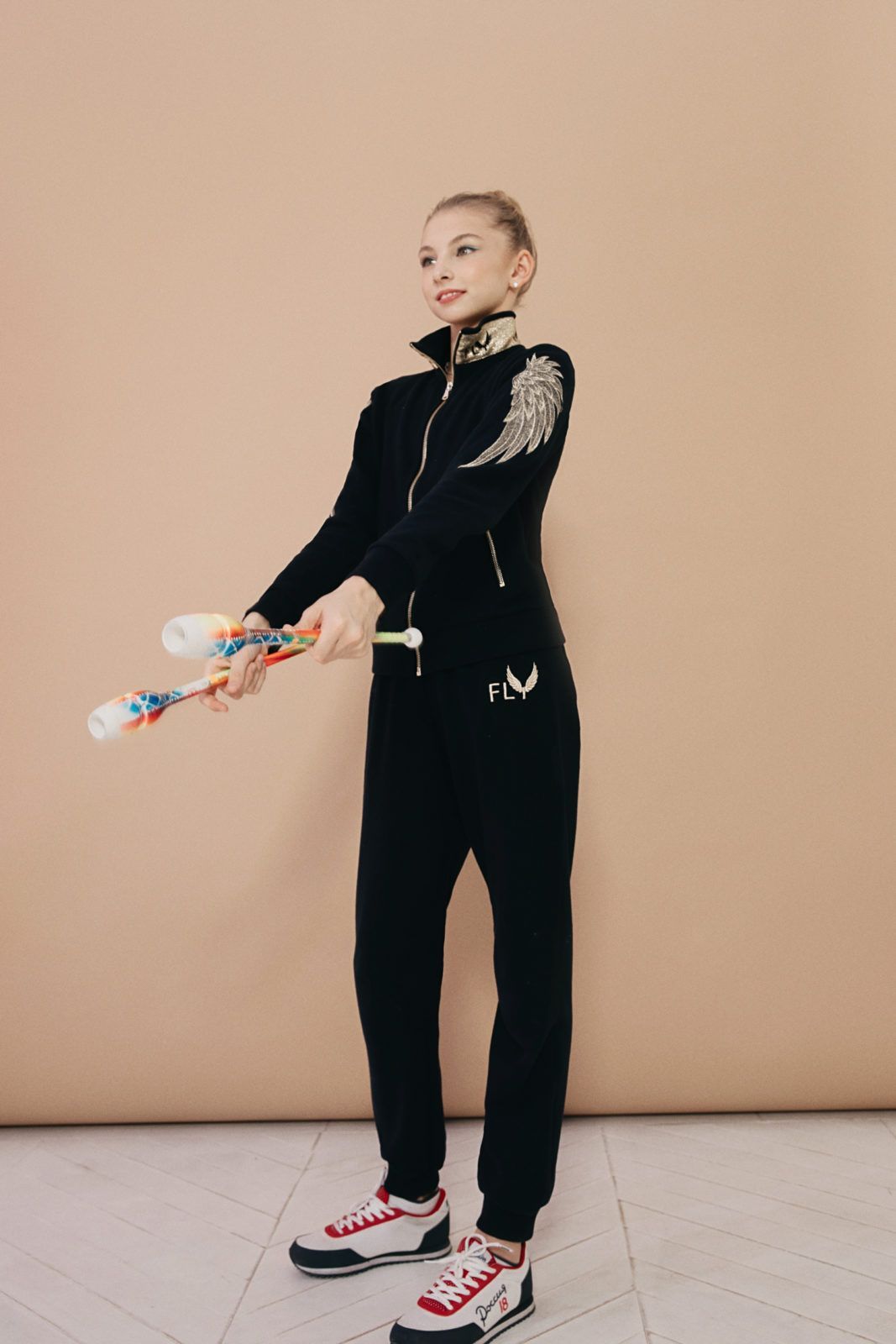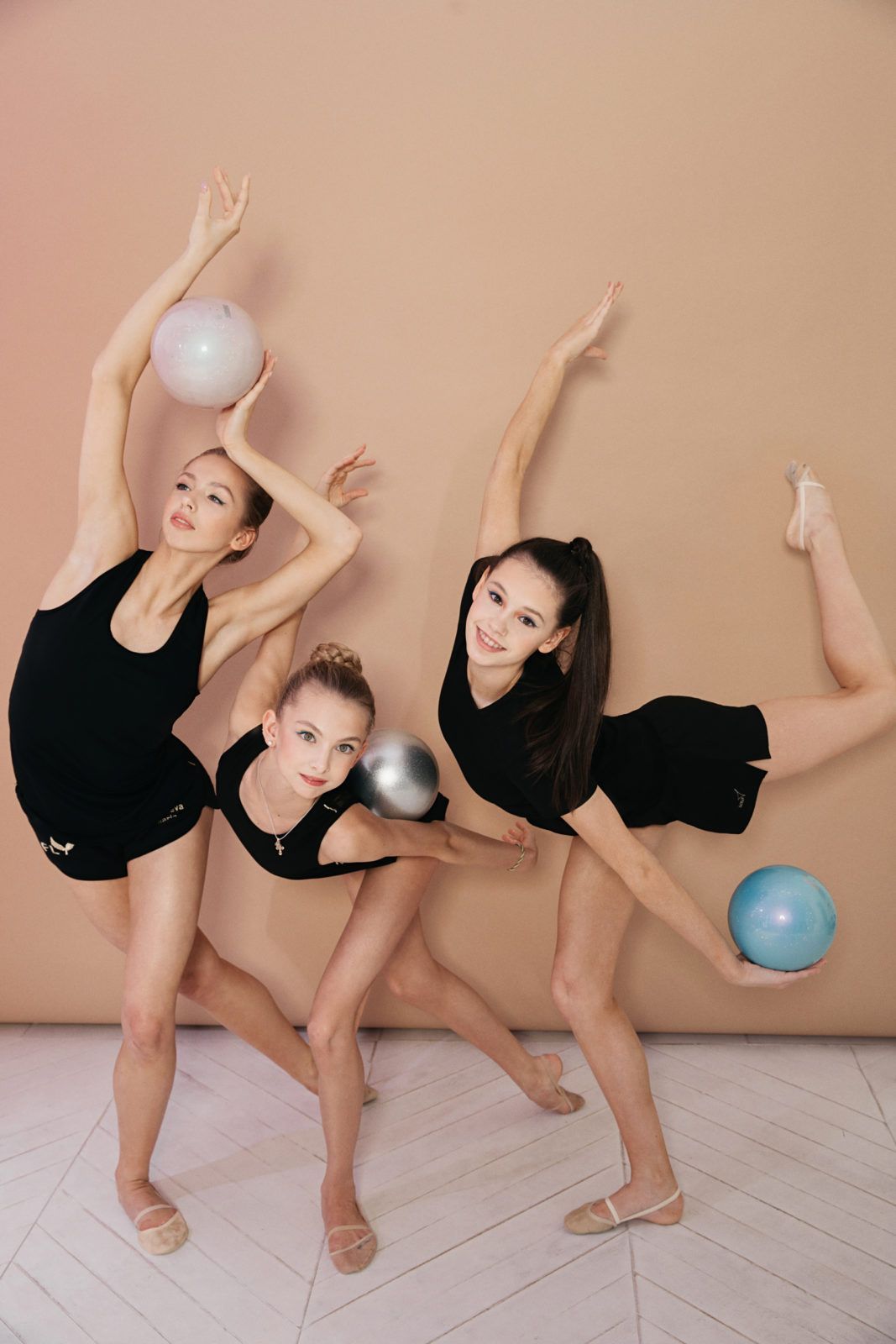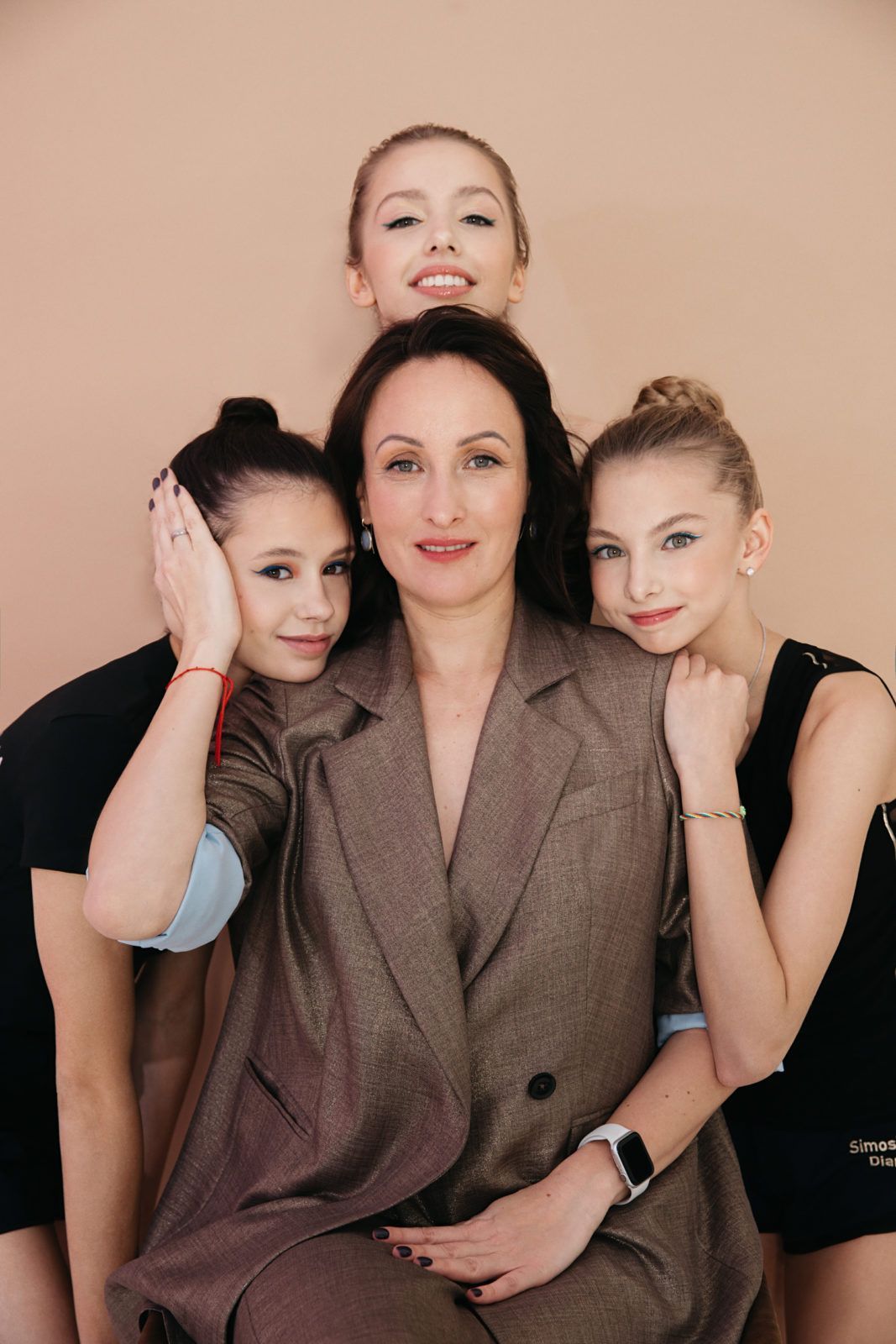At the beginning of the competition season, our editorial staff spoke with Amina Zaripova, Honored Trainer of Russia, who educated such well-known gymnasts as Margarita Mamun and Yana Lukonina and continues by working with a new generation of gymnasts – Maria Sergeeva, Daria Trubnikova and Diana Simoshina. We are interested to find out how Amina Zaripova has become the winner of world championships herself, and now takes gymnasts to a high level, at the same time trying to maintain their individuality and true interest in life.
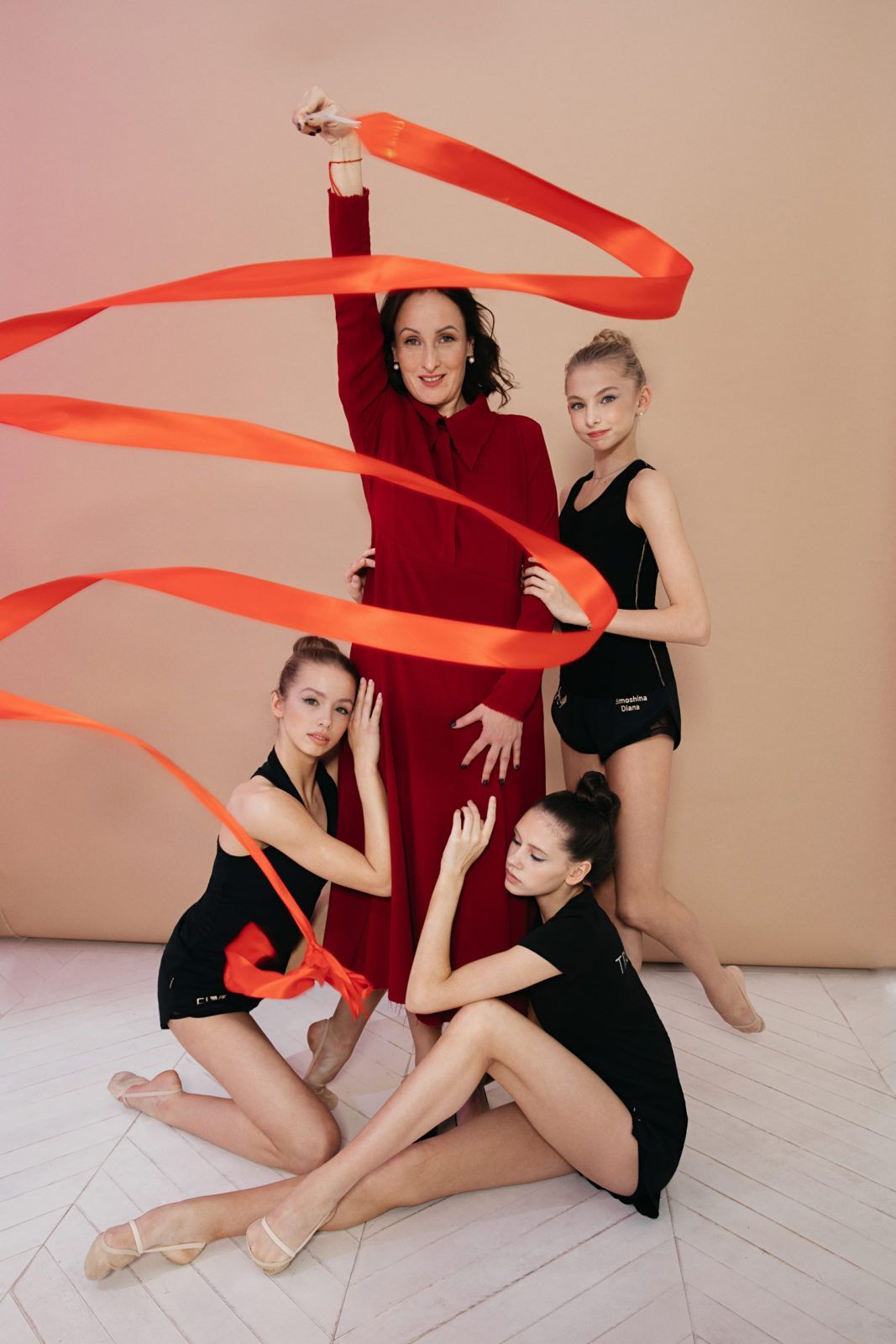 Interview & Producer: Angelina Krivova
Interview & Producer: Angelina Krivova
Photographer: Daria Ratushina
MUAH: Daria Selivanova & Anastasia Kuznetsova
Amina, please tell us how the transition from a sports career to coaching was. You didn’t immediately decide to become a coach, did you?
Yes, the switch was gradual. At first, I didn’t want to return to the gym at all, because the athletes spend all their time in the gym, and at the end of their careers many people really want to change the situation around. Moreover, I was invited to NTV-Plus, where they taught journalism. And, Thanks God, that athletes participate in such projects because there, on the one hand, they try something new, switch, and on the other hand, they can use all the experience and knowledge accumulated over the years of their sports career. But I did not like journalism, it was not mine. At the same time, of course, for a long time I tried to learn how to live in a world completely new to me. It is necessary to understand that athletes are in their own separate world, which is very different from the one that each of us faces when ending a sports career. After some time, the Olympic Training Center opened in Moscow, and Irina Alexandrovna called me and offered to try to work there. I selected gymnasts who were promising and interesting to me. And my coaching career has begun and continues to this day.
When have you realized that the work of a coach is your calling?
As a whole, I realized my calling as a coach much later. In parallel with gymnastics, I tried to do business. Even now it’s funny for me to remember this; I sold tights and opened restaurants. All this was not successful, and, in the end, I realized that it is the best to work in the gym and be with children for me.
How do Irina Zinovka and you manage to make such interesting and varied routines for your gymnasts? Do you have similar views?
Ira is my person not only in the world of rhythmic gymnastics, but also as a kindred spirit. We agree in views, it is comfortable for me to work with her. Of course, we have disagreements, we argue, but basically in these disputes something interesting is born. It is almost impossible to quarrel with Ira, because she is wise and has very good manners.
What has been in gymnastics of your period and what is missing now?
You see, gymnastics is always different. In modern rules, for example, I do not like that there is too much acrobatics and, unfortunately, the gymnast is more than half the exercise upside down, it is not visible. After the Olympics, there will be new rules, I hope they will be optimized. I want the gymnastics to be more feminine, the image and the sport have to be a single whole.
What is the common feature of all your gymnasts?
For me, the most important thing is that they have to be kind. Many of them are, and we try to keep it in them.
What are you more interested in working with girls: artistry or techniques?
Each in its own way, because the children are different. In fact, it’s more interesting to work on artistry, to reveal their images and to have them do it every time. Of course, everyone’s mood is different, but my task is to go to the stage and always show the real performance.
Diana Simoshina knows how to hear music, she feels it, and it is innate. At the same time, she simultaneously makes complex elements. Here I can only adjust, ask to make it brighter. Masha Sergeyeva is born to move very beautifully, she has special plastic. It is more difficult to work with Dasha Trubnikova, because she is quite characteristic and stubborn. When she nevertheless listens to me, she fulfills and, as Irina Aleksandrovna says, “enters the stream” – she can be watched and admired.

And what was the most difficult thing to work with Rita?
The training process with Rita was not difficult, it was my pleasure to work with her. It was difficult in terms of psychology, we had to figure it out and make sure that in the competitions she would not make mistakes. We worked a lot, but at a crucial moment, at the competitions, something went wrong, and she lost. If you look at her biography, her main places were the second and the fifth. She had chances to win the European and World Championships, but she made mistakes, and the only competitions where she performed everything beautifully were the Olympic Games.
In my question to Rita, who raised in her an honest, sober assessment of herself on the carpet, she said that it was your merit. How did you achieve this?
I don’t know, because I am critical of my work and, probably, what my children are doing. Even if my gymnast did well, I still see that somewhere the foot is not stretched out, or she did not bring her image to the end. Although it was in terms of images that I was lucky with them, they are very artistic.
The coach always grows with her gymnasts, because all girls are different and you need to find an approach to each and every one. First, you get used to the child, adapt to them, find the pros and cons, try to turn the cons into pros. The coach has an exam every time, so you study continuously.
Competition, what does it mean for a coach?
That is the exam that I just mentioned. Exam on the work done and not only for the coach, but also for the gymnast.
What is impossible to teach a gymnast?
Everything can be taught, most importantly, that there should be desire. It depends on what goals and objectives are set, because everyone has their own Olympic Games. For some gymnasts, it is to overcome fear and go on the carpet, for someone to fulfill the first adult category, or even learn to make some kind of an element.
What does it mean to be responsible in sports?
Speaking about sports of the highest level, it is necessary to understand that girls perform not only for themselves, but also for their country. This is prestigious, but at the same time very responsible!
You not only train girls, but also go to the cinema, museums and theatres with them. Tell us why you are doing this?
Why not! Firstly, it’s important for everyone to switch, not just gymnasts. Secondly, girls live without parents at a sports base, and apart from the gym and their room, they see nothing. Irina Aleksandrovna takes the girls to the Bolshoi Theatre, but I have the opportunity to diversify this by visiting exhibitions and performances. I try my best!
What is the main thing that a gymnast should learn during a sports career?
Learn to feel their body, to own it. And, of course, gymnastics is not only the ability to control the body, therefore, to cultivate character and hard work. They should also understand that gymnastics is only the beginning of their life’s journey.
What is the role of a coach after his athlete has completed a sports career?
It is important for me to be a friend. We should be partners while we are training, and remain friends after, so that they can always come to me for advice, a request. Sometimes I can even consult with Rita about something.
And the last question I ask everyone. Is rhythmic gymnastics a sport or an art?
Rhythmic gymnastics is certainly a symbiosis. Sport, because girls go on the carpet, compete and get judges’ marks for the routines, and art, because rhythmic gymnastics is always creativity.



